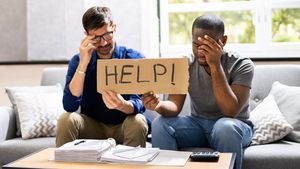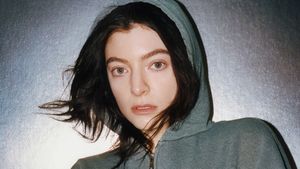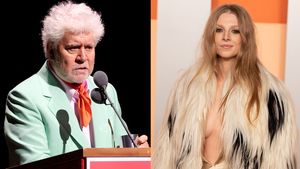While the National Eating Disorder Association reports that the LGBTQ community is disproportionately plagued by eating disorders, experts are saying that being a minority contributes to this dilemma.
Dr. Norman H. Kim, national director for program development at Reasons Eating Disorder Center, believes that queer people are drawn to unhealthy eating habits because of minority stress. Behaviors such as binging, purging, and undereating are a symptom of chronic social stress LGBTQ people experience as minorities, he told Stylecaster.
The rates at which queer people are having this reaction to being otherized are alarming.
According to the National Eating Disorder Assocation, gay men, who are believed to represent five percent of the male population, make up 42 percent of men with eating disorders. They are 12 times more likely to report bulimic purging than straight men. Across the gender line, lesbians, bisexual women, and "mostly heterosexual" women are twice as likely as straight-identified women to engage in binge eating at least once a month.
Transgender individuals also face significant battles with eating disorders.
“Studies have shown that compared to their cisgender counterparts, trans youth in particular are more likely to engage in unhealthy fasting, using diet pills and steroids and taking laxatives. In fact, the risk is about four times greater in this population of individuals," psychologist Ashley Solomon told Stylecaster. As Eating Recovery Center's regional managing director of telebehavioral health, she works in Ohio and South Carolina.
Solomon believes that transitioning is intertwined with discomfort in one's body, and in the process of transforming their secondary sex traits, trans women may develop an eating disorder in their efforts to appear thinner and more traditionally feminine.
Regardless of whether LGBTQ people are cisgender or trans, Solomon believes that the stigma, prejudice, and rejection the community regularly faces contribute to poor physical and mental health as well as low self-esteem. These struggles are key risk factors for an eating disorder.
“Eating disorder behaviors generally develop as a mechanism for coping with seemingly unmanageable feelings and stress,” Solomon said. “In particular, a personal and cultural history of social stigma and discrimination is a major risk factor for developing mental health challenges, including eating problems. For someone who has the genetic makeup to be at risk for an eating disorder, bias, bullying, family rejection, and an overall hostile world can tip the scales, so to speak, and lead to dangerous eating disorder symptoms.”
However, although LGBTQ people, particularly trans individuals, are disproportionately affected by these disorders, medical professionals often lack the tools to deal with this population.
“The greatest danger is that in the eating disorder treatment community, just like most of the medical and psychological communities, there is very little understanding of how to work with [trans] people,” Kim explained. “Finding eating disorder specialists who also have experience working with the trans population is essential but can be challenging, although we are seeing increasing efforts to correct this in our field.”






























































































































